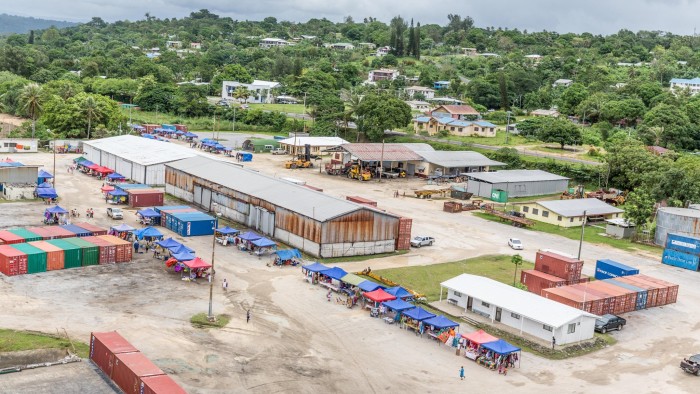Vanuatu reviews ‘passports for sale’ scheme over EU worries

Roula Khalaf, Editor of the FT, selects her favourite stories in this weekly newsletter.
Vanuatu is reviewing its “passports for sale” scheme over concerns that inadequate scrutiny of the mainly Chinese applicants risks undermining the visa-free access it enjoys with the EU.
Since it was launched in 2016, the citizenship programme has generated more than $200m in government revenue for Vanuatu, mostly from Chinese applicants eager to obtain a passport that provides visa-free access to 129 countries, including the EU.
But a series of scandals, including the deportation of six Chinese nationals in July at the request of Beijing — four of whom held Vanuatu passports — led the EU to express its concerns about the programme’s controls.
“We are getting some negative implications as a result of the lack of due diligence on applicants to get citizenships, which is affecting our bilateral relations with other countries,” said Ralph Regenvanu, Vanuatu’s minister for foreign affairs.
“So, it’s important for us to take stock, stop some aspects of the programme and make the other aspects better.”
The review comes amid wider worries in the west over Chinese influence in the Pacific, where Beijing has funnelled $6bn in development aid since 2011 on infrastructure projects. Chinese universities have developed Pacific language programmes and offered hundreds of scholarships to Pacific students to boost educational links.
Beijing’s Pacific push has persuaded six of the region’s island nations to switch their diplomatic allegiance away from Taiwan towards Beijing since 2016. Most of the tiny island nations have populations of fewer than 1m people — just 300,000 people live in Vanuatu — but each has a vote at the UN and controls strategic shipping lanes in Pacific waters.
Mr Regenvanu said in an interview with the Financial Times that, because of its limited economic clout, Vanuatu had no choice but to use its votes strategically in international organisations such as the UN. He said this included targeting infrastructure investment from larger countries, such as China.
“We’re experiencing a surge in Chinese interest in Vanuatu and investment in Vanuatu compared to, for example, Australia, a traditional partner,” said Mr Regenvanu.
He rejected western concerns that Beijing held too much sway in the region. “The important thing is we make sure that our laws that we develop for our benefit are enforced across the board. It doesn’t matter who you are,” he said.
But the deportation of the four Vanuatu passport holders to China undermined this statement. The Daily Post in Vanuatu suggested that Beijing had persuaded the local government to “enforce Chinese law within its own borders”.
Vanuatu is not alone in selling citizenship, although most countries such as the UK or US require investments in businesses or government bonds before handing over a passport or residency permit. But the popularity of the programme — some 4,000 passports have been issued and in 2018 passport sales generated a third of government revenues — sets Vanuatu apart.
Mr Regenvanu said the programme review was already under way and would be completed before an election in March. He said the government was not happy with the level of due diligence on applicants or the structure of a programme that requires little more than a $150,000 cash payment to receive Vanuatu citizenship.
“The challenge is oversight and regulation; just who exactly is getting these passports?” asked Jonathan Pryke, director of the Pacific programme at the Lowy institute, a think-tank.
“Vanuatu passports are appealing, they’re relatively cheap and have no requirement for a minimum amount of time or investment in the country itself, just a cash payment.”
Comments